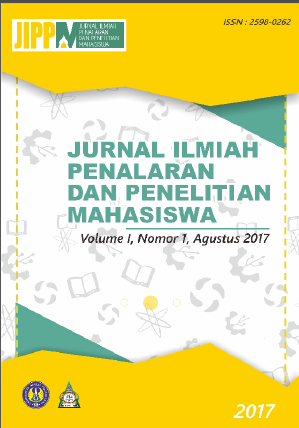ECOGREEN (ENVIRONMENTAL-CODE GREEN REVOLUTION) SOLUSI MEWUJUDKAN BANTARAN KALI CODE BERSAMA (BERSIH, SEHAT, MANDIRI) YANG BERKELANJUTAN
Main Article Content
Abstract
Over the past decades, waste problems in Kampung Code is inavitable. Kampung Code experienced huge waste problem due to littering activity by people into environment that brings out hygiene and social problems. In order to reduce waste problem, Kampung Code has implemented waste banking in every small community (RW), but it is lack of participation and eventually brings new problem that should be noticed. On the other hand, waste might create new product that has high economic and use value if it gets a proper treatment through ECOGREEN (Environmental Code Green Revolution) programme. This research aims to; (1) Analyze the key factor of environmental problem. (2) Explain ECOGREEN implementation system and; 3) Analyze role and strategy of ECOGREEN expansion in Kampung Code. Research was conducted in Kelurahan Cokrodiningratan, Yogyakarta during March – April 2017. This research is analyze both of primary and secondary data using Statistical SPSS Software, DPSIR Framework and SWOT Analysis. Based on the result, key factor of waste problems are environment, household, and waste banking system. Public participation, infrastructure provision, and integrated waste banking are necessary to be implemented. ECOGREEN consist of 1) Green saving, that optimize waste saving through waste banking system; 2) Green Exchange, that modify waste management through barter system; and 3) Green entrepreneurship, that creates waste management into community entrepreneurship based programme. ECOGREEN gets positive responses from many parties for supporting Kampung Code BERSAMA (Bersih, Sehat, dan Mandiri) and simultaneously respond waste problem so that supporting the goals of sustainable Kampung Code.
Article Details
References
Arah Penguasaan Model Aplikasi. Jakarta: PT Raja Grafindo Persada.
Gari, S.R., Newton, A., dan Icely, J.D. (2015). A Review of The Application and Evolution of The DPSIR Framework With An Emphasis On Coastal Social-Ecological Systems. Jurnal Ocean and Coastal Management, 103, 63-77.
Murdaningsih, D. (2016). 405 RW di Yogya Sudah Miliki Bank Sampah. Diakses pada 2 April 2017,
dari http://nasional.republika.co.id/berita/nasional/daerah/16/08/09/obn15e368405-rw-di-yogya-sudah-miliki-banksampah.
Peraturan Daerah DIY No.3 Tahun 2013 tentang Pengelolaan Sampah Rumah Tangga dan Sampah Sejenis Rumah Tangga.
Peraturan Menteri Negara Lingkungan Hidup Republik Indonesia Nomor 13 Tahun 2012 Tentang Pedoman Pelaksanaan Reduce, Reuse, dan Recycle melalui Bank Sampah.
Rustiadi, E., Sunsun, S., dan Dyah, P. (2009). Perencanaan dan Pengembangan Wilayah. Jakarta:
Yayasan Obor Indonesia.
Tchobanoglous, G., Theisen, H., dan Vigil, S. (1993). Integrated Solid Waste Management. New York: McGraw-Hill.

